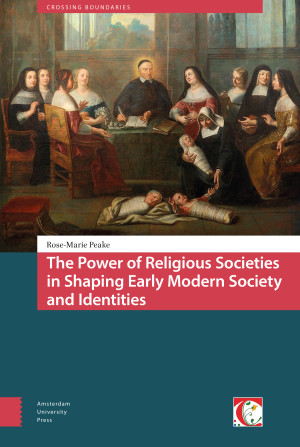"[...] Peake’s work offers fresh perspective on the history of the Daughters of Charity and, more broadly, female spirituality in early modern France."
- Sarah Loose, Renaissance Quarterly, Vol. 75, No. 2
"[...] this is a thoughtful essay on the 'culture' of the Daughters of Charity and is a useful companion to the works of Barbara Diefendorf, Elizabeth Rapley, and other authors on seventeenth century French female spirituality."
- Elizabeth Tingle, Church History, Vol. 89, Iss. 4


